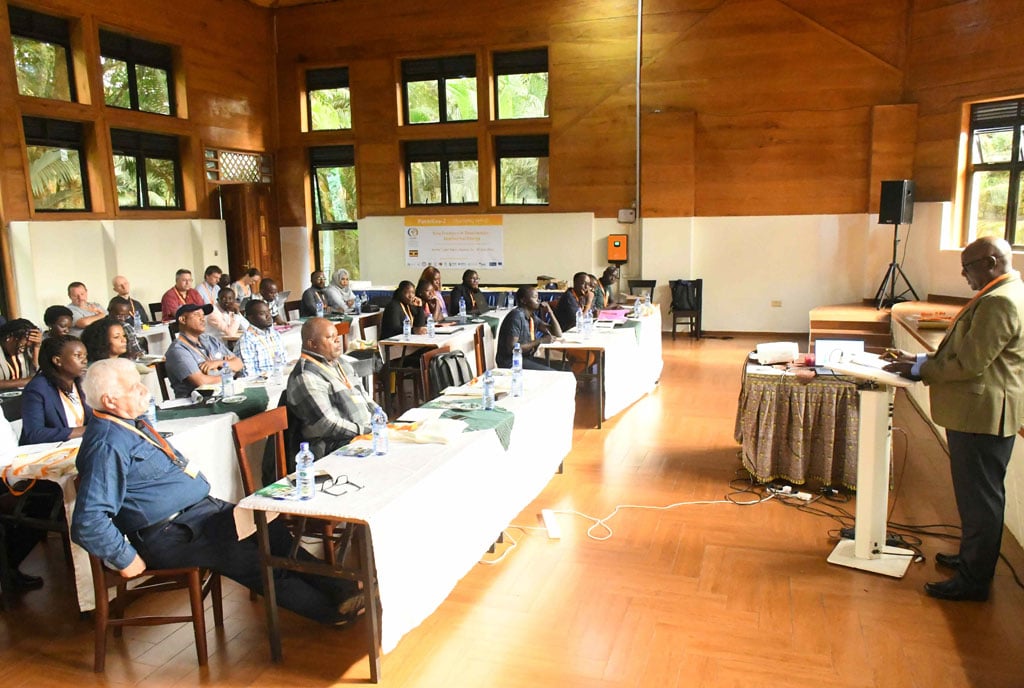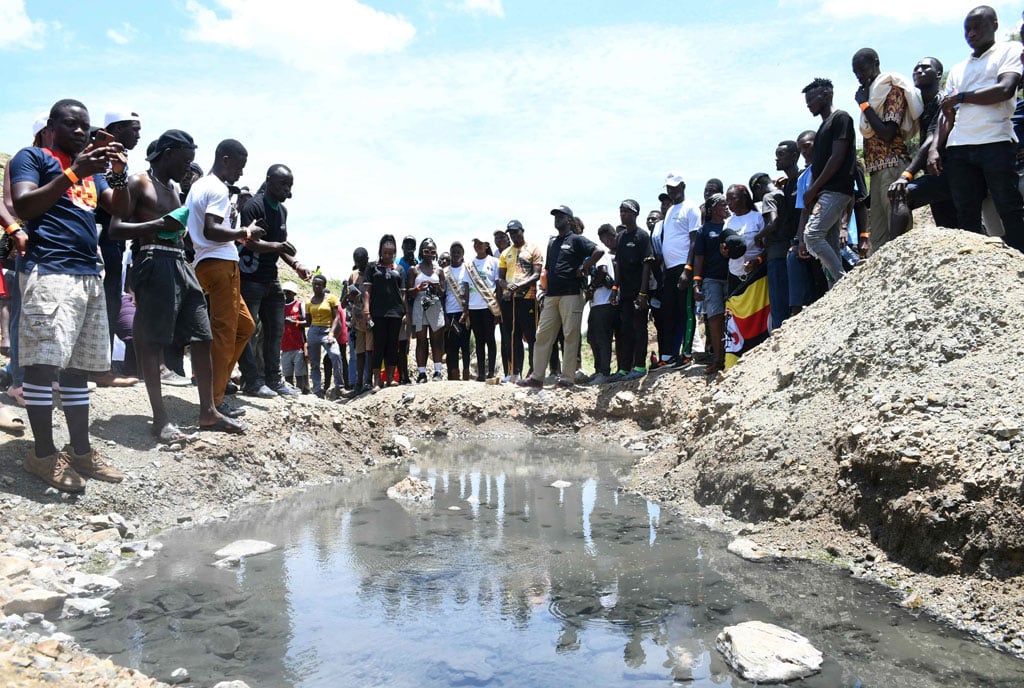Uganda to generate electricity from 4 geothermal sites

Godfrey Bahati, Commissioner Geothermal Resources at the Ministry of Energy and Mineral Development addressing geoscientists from 15 African countries attending training in Hoima City on June 24, 2024. PHOTO/ALEX ASHABA
What you need to know:
- Geothermal is a versatile energy form that can be used for a wide variety of direct applications.
The Ministry of Energy has announced that it is set to start generating electricity from four geothermal sites out of the 27 identified locations that are now ready.
Several power plants will be established at different sites in an initiative expected to bolster industrialization, agriculture and tourism “for economic growth.”
According to Godfrey Bahati, the commissioner for Geothermal Resources at the Ministry of Energy, the Kibiro site in Hoima District will be the first to be developed for electricity production.
The other sites ready for production are Buranga in Bundibugyo District, Katwe in Kasese District, and Panyimur in the Pakwach District.
"In 10 years, we shall not be talking of Hydropower potentials,” Bahati remarked on Monday in Hoima City during the opening of a six-day geothermal energy training of geoscientists from 15 African Countries hosted by the Ministry of Energy and organized by PanAfGeo (Pan-African Support to Geological Sciences and Technology).
Bahati emphasized that government aims to diversify power production sources, complementing rather than competing with hydropower once the production is complete.

Officials from government inspecting Kibiro hot spring site in Hoima district on September 28, 2023. PHOTO/ALEX ASHABA
Bahati said all the geothermal energy sites will generate 1,500 megawatts, adding to the 4,500 megawatts currently produced by hydropower, to meet future power demands.
“Geothermal energy is environmentally friendly, can be produced on-site, and can be generated incrementally, unlike hydropower which requires a dam, it is useful for industrialization, agriculture, aquaculture, and salt mining,” Bahati observed.
Geothermal energy is sourced from underground and not necessarily dependent on water level. Over the years, government has been doing significant research, which is now in its final stages, paving way for electricity generation to begin.
Prof. Stanislaw Wolkowicz from the Polish Geological Institute, and team leader of New Frontiers in Geoscience – Geothermal Energy, highlighted that Uganda is among the 54 African countries with geothermal energy resources, particularly in the western Rift Valley area.
"We want our people to understand how to utilize geothermal energy, measure site temperatures, and evaluate these resources. All participants will have many valuable insights to take home from Uganda," Prof. Wolkowicz stated.
Ugandan officials say they are promoting the use of renewable sources such as geothermal energy, as alternatives to hydropower and fossil fuels generation.
Geothermal is a versatile energy form that can be used for a wide variety of direct applications such as spas, swimming pools, baths, heating greenhouses and dehydrating agricultural products.




